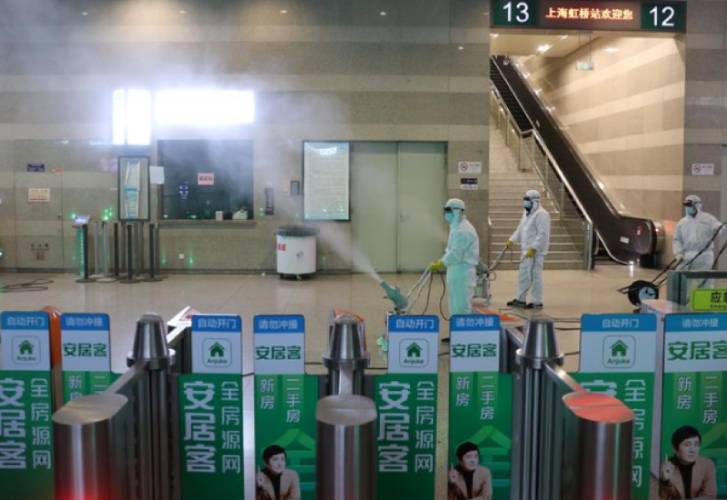×
The Standard e-Paper
Stay Informed, Even Offline

Workers in protective suits disinfect the Shanghai Hongqiao Railway Station, following the outbreak of a new coronavirus, during Chinese Lunar New Year holiday in Shanghai, China January 27, 2020. (Reuters)
The recent outbreak of Coronavirus in Wuhan, China, has spread to other parts of the world. At least 106 have died and 4,500 cases have been reported.